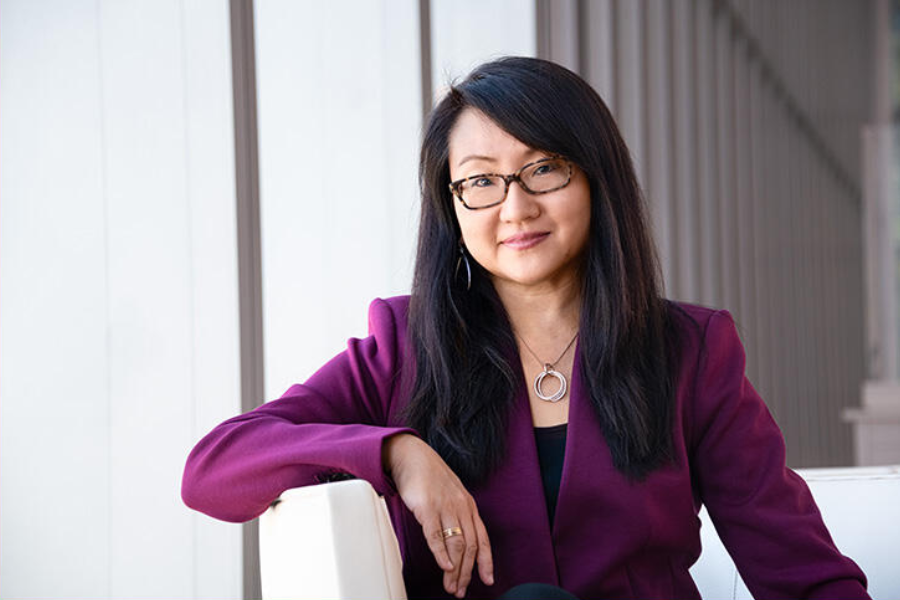Katherine Lee stands as a distinguished figure in the field of chemistry, with her impactful work at Purdue University’s renowned Department of Chemistry. Specializing in computational chemistry, mass spectrometry, and data-centric scientific methodologies, Lee offers a unique viewpoint and invaluable contributions to Purdue’s academic and research community. This article delves into her educational background, research focus, teaching role, and broader influence within the scientific domain.
Academic Beginnings and Educational Foundation
Katherine Lee’s journey into the world of chemistry began during her undergraduate years at the University of California, Berkeley, one of the world’s leading research institutions. At Berkeley, she engaged deeply with both rigorous coursework and hands-on research, developing a strong understanding of chemical principles and scientific investigation. This formative period played a pivotal role in shaping her approach to chemistry and laid the foundation for her later focus on computational methods.
After completing her undergraduate studies, Lee chose to advance her expertise by enrolling in graduate programs. This decision led her to Purdue University, where she has since expanded her academic and research career. At Purdue, Lee’s work integrates computational chemistry, mass spectrometry, and cutting-edge data science, positioning her as a rising leader in her field.
Research Focus: Computational Chemistry and Technological Innovation
Katherine Lee’s research is centered on computational chemistry, a dynamic interdisciplinary field that merges principles from chemistry, physics, and computer science. This area allows researchers to simulate and analyze molecular structures, reactions, and properties using computational tools. Such methods offer deep insights into complex chemical systems and often provide solutions that traditional experimental techniques cannot easily uncover.
Lee’s work within computational chemistry employs advanced algorithms and modeling techniques to predict molecular behaviors, study interactions, and design compounds with targeted properties. Her research holds substantial potential across various industries, including drug discovery, environmental chemistry, and materials science, where computational models can streamline the development of novel technologies and therapies.
Additionally, Lee’s expertise extends to mass spectrometry, a critical analytical tool used to measure the mass-to-charge ratio of ions. This technique enables researchers to gain detailed insights into molecular compositions, chemical reactions, and the identification of unknown compounds. In her research, Katherine Lee combines mass spectrometry with computational methods, creating a synergistic approach that bridges experimental and theoretical work in novel ways.
Lee’s focus on data-driven science has further enhanced her work. With the exponential growth of big data and computational power, her ability to extract meaningful insights from vast datasets positions her as a key player in the transformation of modern scientific research. The use of data science is revolutionizing chemistry, and Katherine Lee’s expertise is pivotal in harnessing this power for groundbreaking discoveries.
Educational Contributions and Teaching at Purdue
In addition to her research, Katherine Lee plays an essential role in the academic life at Purdue University. As a faculty member in the Department of Chemistry, she teaches general chemistry courses, including CHM 11500. Lee’s teaching style integrates her research expertise, offering students a rich combination of theoretical knowledge and hands-on learning informed by her own research insights.
Teaching at Purdue, a leader in science and engineering education, allows Katherine Lee to shape future chemists. Her courses not only introduce students to core chemical principles but also expose them to advanced topics like computational chemistry and mass spectrometry. This integration of research and teaching helps students understand the practical applications of their learning, making chemistry both engaging and relevant.
Lee’s teaching philosophy places a strong emphasis on critical thinking, problem-solving, and scientific inquiry. These skills are essential for future chemists, and Katherine Lee’s commitment to nurturing them ensures that her students are well-prepared to excel in both academia and industry.
Mentorship and Interdisciplinary Collaboration
Mentorship is a cornerstone of Katherine Lee’s role at Purdue. As an emerging leader in the field, she dedicates time to mentoring graduate students and postdoctoral researchers, guiding them through their research journeys, and helping them navigate the complexities of academic life. Through her mentorship, Lee fosters an environment that encourages collaboration, creativity, and the sharing of ideas.
Collaboration also plays a central role in Lee’s research endeavors. Her work is highly interdisciplinary, involving partnerships with other researchers, departments, and institutions. Whether collaborating on computational studies or using mass spectrometry techniques, Katherine Lee understands the power of teamwork in advancing scientific knowledge. Her collaborative spirit not only enriches her own research but also enhances the broader scientific community.
Impact on the Purdue Chemistry Department
Katherine Lee’s influence within the Purdue Chemistry Department has been profound, particularly in her contributions to expanding the department’s focus on computational chemistry and data-driven research. These areas are crucial to the future of chemistry, and Lee’s work has helped position Purdue University as a leader in these cutting-edge fields.
As a rising star in the scientific community, Katherine Lee brings a refreshing perspective to Purdue. Her research bridges the divide between computational predictions and experimental data, offering new insights into complex chemical systems. Her efforts have strengthened Purdue’s position at the forefront of innovative research in chemistry, with Lee playing a key role in the department’s continued success and future growth.
Looking to the Future: Continuing to Shape Chemistry
Looking forward, Katherine Lee is poised to make even more groundbreaking contributions to the field of chemistry. Her work in computational chemistry, mass spectrometry, and data-driven analysis promises to lead to significant advances in drug development, materials science, and environmental chemistry. As technology evolves, her research will undoubtedly play an instrumental role in shaping the future of chemical science.
Beyond her research, Lee’s dedication to teaching and mentoring will leave a lasting impact. The students she mentors will go on to shape the future of chemistry in their own ways, carrying with them the knowledge and skills they’ve gained under her guidance. By nurturing the next generation of scientists, Katherine Lee ensures that Purdue University remains at the forefront of chemistry education and research.
Key Facts about Katherine Lee
- Expertise in Computational Chemistry
Katherine Lee specializes in computational chemistry, an interdisciplinary field that uses simulations and models to study molecular structures, reactions, and properties, offering solutions to complex chemical problems.
- Dual Focus on Mass Spectrometry and Computational Techniques
Lee integrates mass spectrometry with computational chemistry, combining experimental and theoretical approaches to enhance her research and provide deeper insights into chemical systems.
- Data-Driven Scientific Analysis
Lee is at the forefront of data-driven science in chemistry, utilizing advanced data analysis techniques to interpret large datasets and drive breakthroughs in fields like drug discovery, materials science, and environmental chemistry.
- Teaching Role at Purdue
As a lecturer in Purdue’s Department of Chemistry, Katherine Lee teaches general chemistry courses and incorporates advanced research topics like computational chemistry and mass spectrometry into her curriculum, enriching students’ learning experiences.
- Mentorship and Collaborative Research
Lee is committed to mentoring graduate students and postdoctoral researchers, fostering a collaborative environment at Purdue. Her interdisciplinary research often involves partnerships across departments, creating a thriving academic ecosystem.
Conclusion: Katherine Lee’s Lasting Legacy at Purdue Chemistry
Katherine Lee’s work at Purdue University exemplifies the transformative power of combining computational techniques with experimental science. Through her research in computational chemistry, mass spectrometry, and data analysis, she has made significant contributions to the field. As an educator and mentor, she is shaping the future of chemistry, inspiring the next generation of scientists to address the challenges of tomorrow.
As Purdue continues to be a hub of scientific innovation, Katherine Lee’s ongoing contributions will undoubtedly continue to push the boundaries of what is possible in the field of chemistry, leaving a lasting impact on both the scientific community and the broader world.
Frequently Asked Questions (FAQs) about Katherine Lee’s Impact on Purdue Chemistry
What are Katherine Lee’s main areas of research at Purdue University?
Katherine Lee focuses on computational chemistry, mass spectrometry, and data-driven scientific analysis. She combines these fields to study molecular behaviors, and chemical reactions, and design new compounds, with applications in drug development, materials science, and environmental chemistry.
How does Katherine Lee integrate mass spectrometry with computational chemistry?
Katherine Lee combines mass spectrometry, which measures the mass-to-charge ratio of ions, with computational simulations to create a comprehensive research approach. This combination allows her to better analyze molecular interactions, chemical compositions, and reactions, enhancing both experimental and computational findings.
What impact has Katherine Lee had on the Purdue Chemistry Department?
Katherine Lee has significantly contributed to Purdue University’s chemistry department by expanding its focus on computational chemistry and data-driven research. Her work has helped position Purdue at the forefront of cutting-edge research, with her interdisciplinary approach bridging computational models and experimental data.
How does Katherine Lee contribute to student learning at Purdue?
As a lecturer, Katherine Lee teaches general chemistry and integrates her own research into the classroom, offering students a real-world perspective on advanced topics like computational chemistry and mass spectrometry. Her teaching philosophy emphasizes critical thinking, problem-solving, and scientific inquiry, preparing students for careers in academia and industry.
What is Katherine Lee’s approach to mentoring at Purdue University?
Katherine Lee places a strong emphasis on mentorship, guiding graduate students and postdoctoral researchers through their projects and challenges in the academic world. She encourages collaboration, creativity, and idea-sharing, helping foster a dynamic and productive research environment at Purdue.
Stay in touch to get more news & updates on World Trend!





